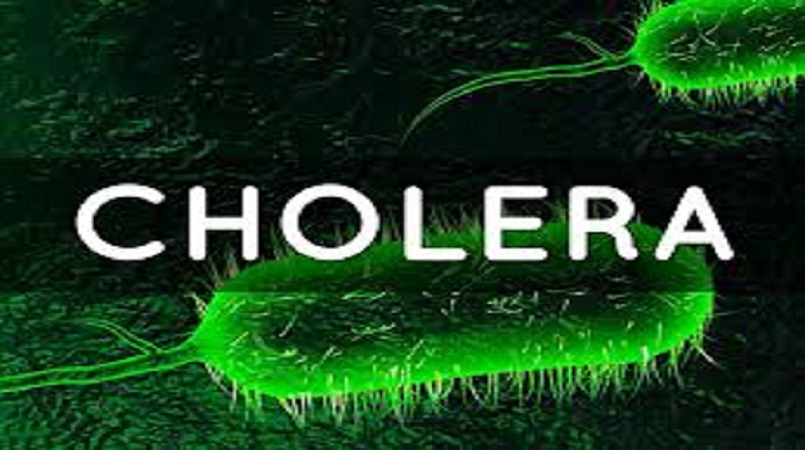
Welcome to another health update from the Port Moresby General Hospital this week we are focusing on cholera.
How is it transmitted, what symptoms should you look out for and the importance prevention.
For more information, please contact info@portmoresbygeneralhospital.com
What is Cholera?
Cholera is an acute intestinal infection caused by ingestion of food or water contaminated with the bacterium Vibrio cholerae. Researchers have estimated that every year, there are roughly 1.4 to 4.3 million cases, and 28 000 to 142 000 deaths per year worldwide due to cholera according to the World Health Organization. The short incubation period of 2 hours to 5 days, is 1 factor that triggers the potentially explosive pattern of outbreaks. The transmission of cholera occurs through the fecal-oral route of contaminated food or water. Cholera is most likely to be found and spread in places with inadequate water treatment, poor sanitation, and inadequate hygiene and can spread rapidly in these areas. Most cholera cases in developed countries are a result of transmission by food, while in the developing world it is more often water. The cholera bacterium may also live in the environment in brackish water and estuaries. Recent studies indicate that global warming creates a favorable environment for the bacteria. World Health Organization (who) advises that Cholera remains a global threat and is one of the key indicators of social development. While the disease no longer poses a threat to countries with minimum standards of hygiene, it remains a challenge to countries where access to safe drinking water and adequate sanitation cannot be guaranteed. Almost every developing country faces cholera outbreaks or the threat of a cholera epidemic. Communities should be reminded of basic hygienie behaviors, including the necessity of systematic hand-washing with soap after defecation and before handling food or eating, as well as safe preparation and conservation of food.
Symptoms of Cholera
Cholera is an extremely virulent disease. It affects both children and adults and can kill within hours. About 80% of people infected with V. cholerae do not develop any symptoms, although the bacteria are present in their faeces for 1-10 days after infection and are shed back into the environment potentially infecting other people. Among people who develop symptoms, 80% have mild or moderate symptoms, while around 20% develop acute watery diarrhea with severe dehydration which can lead to death if left untreated, vomiting is also common in most patients. Dehydration can be rapid, so fluid replacement is essential. If you think you or a member of your family may have cholera, seek medical attention immediately.
Diagnosis and Treatment
If you think you may have been exposed to cholera, it is important to see a doctor immediately. Those who are experiencing severe diarrhea and vomiting should seek emergency treatment as dehydration can kill within hours if not treated. Cholera can be diagnosed through a stool sample or rectal swab to test for cholera bacterium. Cholera can be treated with prompt rehydration through the administration of oral rehydration salts (ORS) or intravenous fluids depending on the severity of the infection. In severe cases antibiotics may also be given to reduce the severity of infection however up to 80% of patients can be treated adequately with ORS according to World Health Organization (WHO). For children up to five years, supplementary administration of zinc has a proven effective in reducing the duration of diarrhea as well as a reduction in successive diarrhea episodes. If you are being treated for cholera, it is important to follow your doctor’s advice and take any (ORS) or antibiotics exactly as prescribed.
Tips to reduce the risk of Cholera from the Centers for Disease Control and Prevention (CDC): When simple precautions are observed, contracting cholera is unlikely. All people (visitors or residents) in areas where cholera is occurring should observe the following recommendations:
- Drink only bottled, boiled, or chemically treated water and bottled or canned carbonated beverages.
- When using bottled drinks, make sure that the seal has not been broken.
- To disinfect your own water: boil for 1 minute or filter the water and add 2 drops of household bleach or ½ an iodine tablet per liter of water.
- Avoid tap water, fountain drinks, and ice cubes if in doubt.
- Wash your hands often with soap and clean water.
- If no water and soap are available, use an alcohol-based hand cleaner (with at least 60% alcohol).
- Clean your hands especially before you eat or prepare food and after using the bathroom.
- Use bottled, boiled, or chemically treated water to wash dishes, brush your teeth, wash and prepare food, or make ice.
- Eat foods that are packaged or that are freshly cooked and served hot.
- Do not eat raw and undercooked meats and seafood or unpeeled fruits and vegetables.
- Dispose of feces in a sanitary manner to prevent contamination of water and food sources.
When Should You Wash Your Hands?
- Before, during, and after preparing food
- Before eating food
- Before and after caring for someone who is sick
- Before and after treating a cut or wound
- After using the toilet
- After changing nappies or cleaning up a child who has used the toilet
- After blowing your nose, coughing, or sneezing
- After touching an animal, animal feed, or animal waste
- After touching garbage
How Should You Wash Your Hands?
- Wet your hands with clean, running water (warm or cold), turn off the tap, and apply soap.
- Lather your hands by rubbing them together with the soap. Be sure to lather the backs of your hands, between your fingers, and under your nails.
- Scrub your hands for at least 20 seconds. Need a timer? Hum the "Happy Birthday" song from beginning to end twice.
- Rinse your hands well under clean, running water.
- Dry your hands using a clean towel or air dry them.
